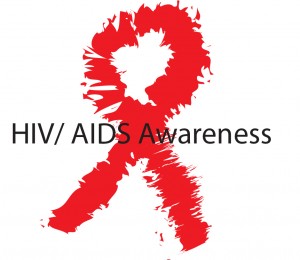By Leyla Oun/reporter
During childhood, the boogey-man was the most terrifying concept to lurk beneath the covers, but entering adulthood, the possibility of contracting HIV through sex reigns supreme on an adult’s bedsheet fears.
College students have heard the horror stories, have heard the constant warnings to practice safe sex and to get tested, but it often seem to fall on deaf ears.
While Ebola had students and young adults washing their hands vigorously and alienating themselves from friends who were unfortunate enough to sneeze in their directions, only four people have contracted Ebola so far in the United States.

According to the Centers for Disease Control and Prevention, the HIV virus, however, infects 50,000 people each year and, unlike Ebola, has no cure.
An estimated 10,456 young people were diagnosed with HIV in 2011, the latest year for which statistics are available. They represented 21 percent of an estimated 50,199 people diagnosed during that year.
While the percentage is relatively low, the CDC reported that at the end of 2010, an estimated 11,413 young people with an AIDS diagnosis had died in the United States since the HIV epidemic began in the 1980s.
Despite all the publicity about AIDS and HIV in America, many young adults ignore the evidence.
According to the Texas Department of State Health Services, 30 percent of all new HIV infections in Tarrant County were among young people 15 to 24. The rate of new HIV/AIDS increased 36 percent among 15-to-24 year olds in the county.
All TCC campuses offer free and confidential HIV screenings provided by AIDS Outreach and MHMR Street Outreach twice a month. During their visits, students can be tested and have results within a week.
“Know your HIV status,” said Randy Parsons, director of Think Before You Sleep HIV Testing and Education. “Know the HIV status of your partner. The safest way to prevent HIV is to abstain from sex outside of a committed, monogamous relationship with an HIV-negative partner.”
Parsons urged college students to take part in the free testing offered and to be wary of what precautions should be taken.
“The 18-to-24 year old range is the fastest-growing HIV-infected group,” he said. “The reasons why are so broad … they include ignorance to personal status, multiple partners, thinking ‘It won’t happen to me,’ too much to drink and don’t know what happened.”
Liz Lowry, SE health services coordinator, said students should abandon denial and become informed.
“I would encourage students to come by health services and pick up some of our educational materials so that they can be knowledgeable about HIV and other STDs,” she said. “Our staff of registered nurses is also able to answer questions and provide referrals as needed.”
Some students have also joined in the fight to raise awareness.
Jhericca Johnson, a recent South Campus graduate, reflected on her close encounter.
“A former boyfriend-turned-friend asked to crash on my couch one night out of the blue,” she said. “That night he started flirting with me and started asking to get busy, and I said no. Not 30 minutes later he comes out of the bathroom complaining about how it hurts to pee since he had a one-night stand with some other girl.
“Come to find out, he had HIV and he was wanting to sleep with me when he knew damn well that maybe he might have contracted something.”
Johnson thought her story could serve as a warning for others.
“If you’ve had unprotected sex, you need to be tested,” she said. “Sometimes you should just check for the sake of checking — you can never be too careful.”

























